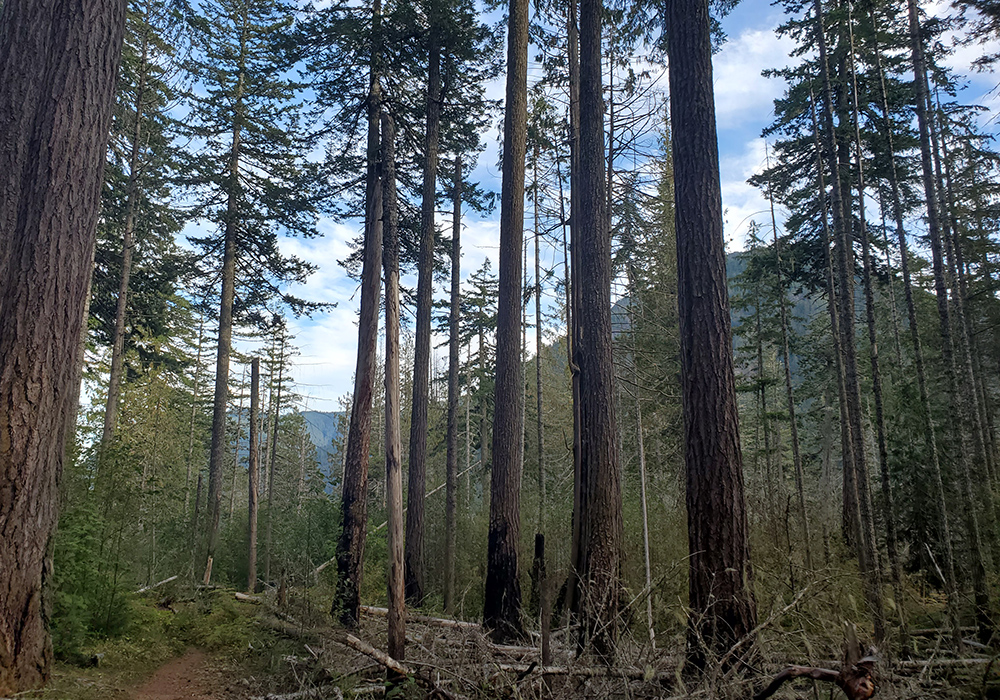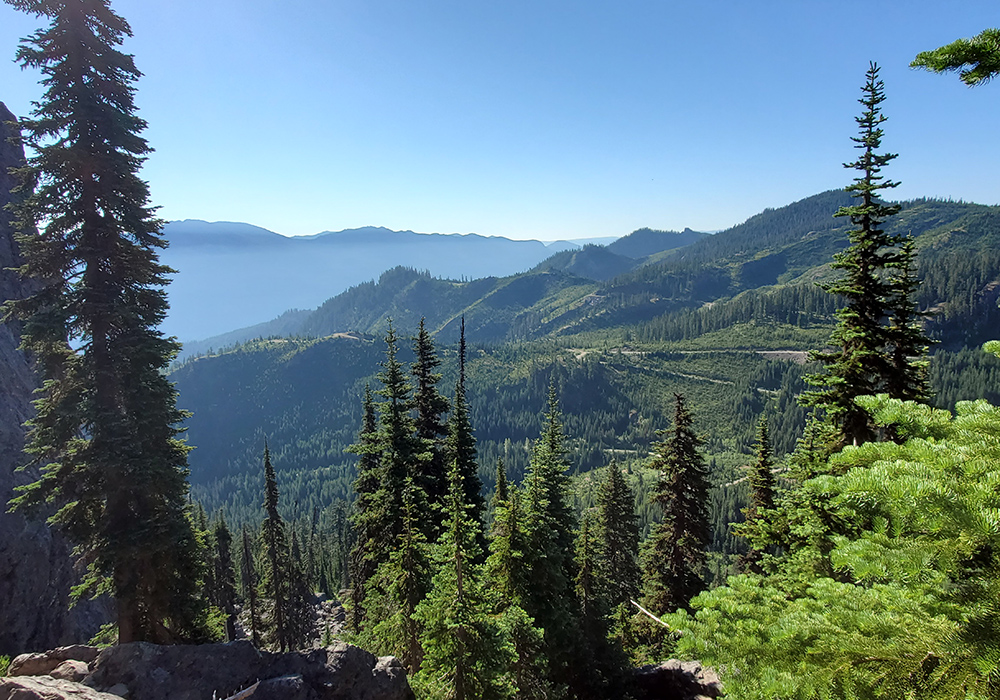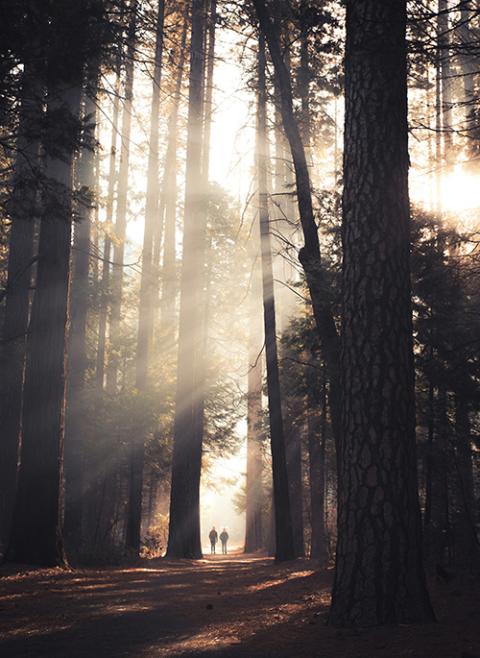
Trees are pictured in a forest in Washington. Contributor Annapatrice Johnson is heartened that the U.S. Forest Service has proposed a plan to advance protections, via a forest plan amendment, for the remaining old-growth trees in all 128 U.S. national forests. (Courtesy of Climate Forest Coalition)
In his recent apostolic exhortation, Laudate Deum, Pope Francis shared a clear message: our Common Home is suffering from a human-driven climate crisis, and it is up to us to take urgent action. Knowing this, it pains me to see that a critical part of our natural world and one of our biggest natural resources for slowing climate change, our majestic mature and old-growth forests on federal lands, are being lost to logging.
From filtering the air we breathe and the water we drink to providing essential wildlife habitat and spiritual value, mature forests and big trees are powerful life sources. By absorbing harmful pollutants that can cause harm through high rates of asthma, heart disease, lung disease and cancer, these trees give us clean air to breathe. By clearing out toxins from the water flowing into rivers, streams and reservoirs, mature forests help provide our communities with clean, reliable water to drink.
And importantly, given the climate crisis highlighted by Pope Francis, our mature and old-growth forests on federal land store 17.2 billion metric tons of carbon and counting. Forests are at the heart of our country's climate resilience and are one of our most effective climate solutions. As the Elwha Legacy Forests coalition states, "No human-made technology can match big trees for removing and storing climate pollution. If they are logged, most of that pollution is quickly released into the atmosphere and it takes many decades or centuries for younger trees to recapture it."

A forest landscape in Washington is pictured. (Courtesy of Climate Forest Coalition)
That's why I am heartened to see that the U.S. Forest Service just proposed a plan to advance protections, in the form of a nationwide forest plan amendment, for the last remaining old-growth trees in all 128 U.S. national forests.
Irresponsible logging and the devastating impacts of human-driven climate change have left precious mature and old-growth forests suffering all over the country. Most of our old-growth forests have already been cut down, while many mature forests — future old-growth forests — are on the chopping block. Right now, more than 370,000 acres of mature and old-growth forests, including trees that have stood for nearly a century, face imminent threats of logging under 22 federal logging projects.
Advertisement
In addition to logging, old-growth forests are increasingly threatened by the effects of climate change — wildfires, drought, insects and disease. These forests remove a significant amount of climate-warming carbon pollution from the air and store it in their leaves, branches, trunks, roots and carbon rich soils. These forests also provide wildlife habitat and clean drinking water.
The proposed forest plan amendment could better protect and strengthen the country's old-growth forests, addressing their threats and conserving them as a natural climate solution. Forest Service leaders must ensure that the final amendment truly stops commercial logging of old growth and paves the way for future action to protect our mature trees and forests as well.

Morning sunlight, Yosemite Valley, United States (Unsplash/Casey Horner)
As Pope Francis said in Laudate Deum, "The world in which we live is collapsing and may be nearing the breaking point." In recent years we have witnessed wildfires that have ravaged communities and blanketed others with smoke from hundreds of miles away. We do not have time to waste. It is up to us to slow the global climate crisis and alleviate the suffering that it brings to our communities and to our siblings around the world. We have a moral responsibility to act, and we can contribute to that by protecting our forests.
Pope Francis reminds those of us who are Catholic to recall how "responsibility for God's earth means that human beings, endowed with intelligence, must respect the laws of nature and the delicate equilibria existing between the creatures of this world." As a Catholic himself, President Joe Biden understands the moral and existential imperative that calls us to protect and care for these essential ecosystems and creations of God.
"The world sings of an infinite Love: how can we fail to care for it?" Pope Francis asks in Laudate Deum.
I feel that profound love every time I step into one of our beautiful nation's national forests. This is an opportunity and a responsibility for the Biden administration to lead by example to care for it, by using one of the easiest climate solutions available to us: to ensure the final U.S. Forest Service amendment is strong and protects old-growth trees and forests from logging. These forests are one of our most affordable tools for fighting the worsening climate crisis. We cannot wait any longer for action to protect our communities and common home.








